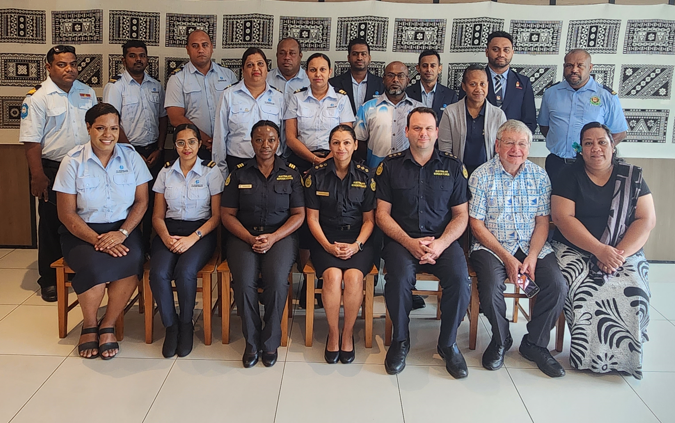May 02, 2024
The Oceania Customs Organisation (OCO) recognises Undervaluation in Trade as a significant challenge, undermining fair competition and revenue collection. OCO is committed to working with its members to implement robust measures to combat this issue and ensure a level playing field for all traders in the Pacific Region.
“It is not just a financial concern as it also directly impacts the lives of people in the Blue Pacific Region,” Oceania Customs Organisation Head of Secretariat, Nancy T Oraka stated.
“When goods are undervalued, governments lose out on critical revenue that could otherwise be used to improve healthcare, education, and infrastructure. This practice also distorts trade statistics and undermines fair competition, affecting local businesses and consumers,” Ms Oraka said.
In response to these challenges, customs officers from across the Pacific were in Fiji last week for a Week of Action as part of a Regional Operation on Trade Risk & Enforcement. Led by the Australian Border Force (ABF) in partnership with the Oceania Customs Organisation (OCO) Secretariat and supported by the New Zealand Customs Service, this initiative aimed to address revenue losses and promote fair trade practices.
“This operation underscores the value of regional cooperation in addressing common challenges faced by Pacific nations. By working together, we can strengthen our ability to detect and prevent undervaluation, ultimately benefiting our economies and communities,” ABF Superintendent Pacific Network Uriah Turner said.
Ten OCO members- Australia, Cook Islands, Fiji, Kiribati, New Zealand, Niue, Papua New Guinea, Tonga, Tuvalu and Vanuatu are part of this regional initiative, which was mandated during the 25th OCO Annual Conference last year. The operation focused on information sharing and trade data analysis to identify discrepancies or undervaluation by mirroring import and export data over a period of time.
“This operation is another step towards ensuring fair trade practices in the Pacific region. By sharing data and information, we can enhance our ability to detect undervaluation and protect our economies,” New Zealand Customs Service’s, Pacific Trade and Revenue advisor Colin Brown said.
Undervaluation occurs when the declared customs value of goods is lower than their actual transaction value. This practice can lead to significant revenue losses for governments, as the taxes and duties collected are based on the declared value of the goods.
For example, a shipment of smartphones is imported into a Pacific Island country with a declared value of $100,000 but the actual value of the smartphones is $150,000. If customs officials do not detect this undervaluation, the government would lose out on the taxes and duties that should have been collected based on the actual value of the smartphones.
The Week of Action included an intensive workshop, training sessions, and data analysis activities to enhance the capacity of customs officers to detect and prevent undervaluation and implement strategies to address these issues.
ENDS
